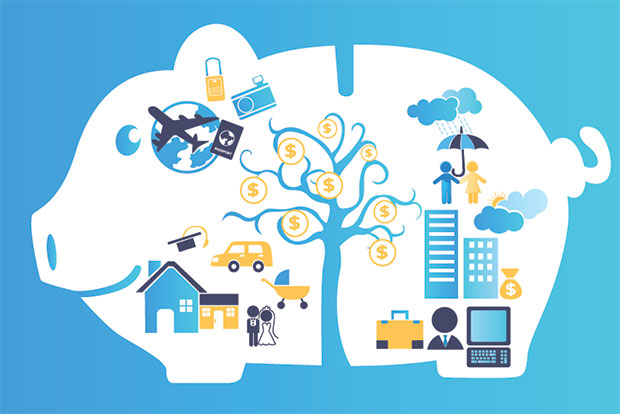Through your 20s, you were probably setting yourself up for the future. You were establishing your career and your skill sets, working your way up through the ranks, and achieving professional, rather than financial goals.
Onto your 30s, and things change a little. If you haven’t already, you’re probably now starting to think about children, mortgages, and longer term financial goals. As such, your planning needs to adjust significantly.
Below you’ll find some key points to check off to ensure that, by the time you’re finished with your 30s, you’re in a good position for the future.
Plan for children
In your 30s, you are probably planning to start a family, and this means you’re going to need to factor that into your budgets. The cost of raising the average number of children in a family is over $1 million, so it’s not an insubstantial amount of money that you need to be prepared to spend. Put aside money for their education, medical costs and other expenses as a priority, before the children arrive.
Pay off HECS or other student debts
Through your 20s, you were building a career and probably not earning a large enough salary to pay off that student debt. In your 30s, you will have more senior roles and will be earning a greater income. Clearing off the HECS debt or any other debts you may have would be a useful priority, freeing you of financial burdens and allowing you to move on with more important investments of your money.
Get Life Insurance
The longer you leave life insurance, the greater the premiums will be. In your 20s it is probably an unnecessary expense, but as financial security for your family becomes more important in your 30s, you’re going to want to get in relatively early to ensure the best rates possible.
Start thinking about investments
The best way to generate additional income security is to start taking some spare cash and turning it into investments. By the end of your 30s, you ideally want to know enough about investment to have put some money into areas that are generating returns.
Increase mortgage repayments
If you’re able to find even $20 a week more to pump into the mortgage, then you’re looking at a significant reduction to the long term interest accruing on the property, and you’re going to pay it off more quickly. Once the mortgage has been paid off it becomes your most valuable asset, so make paying it off a priority.
Get on top of your tax
Now that your earning potential is higher, it’s also important to start managing the tax burden better. Finding tax-effective ways of earning more cash is important, and equally, finding ways to make investments that will reduce your tax debt will help. From charity donations to investing in the arts, there are multiple ways to offset tax in Australia, which will in turn help ease your financial pressures – not to mention providing you with opportunities to support causes that you care about.
Set up a rainy day fund
It’s also a good idea in your 30s to set up a small bank account with cash that can sit there in the event that an emergency hits. The amount that sits in the account should be enough to cover unexpected, but substantial costs that can crop up in life. Whether that be a broken windshield on the car, a burst pipe in the home, or similar, this account can cover those costs without you needing to dip into your day-to-day spending money or goal-oriented savings account.
Salary sacrifice to build up your super
The more super you can build up, the happier you’re going to be in later life, because you’ll have access to more money. People are living for as much as 30-40 years after retirement now, meaning that the super needs to be stretched much longer than ever before. By sacrificing some of your pre-tax dollars of salary in your 30s, by the time you hit retirement you’re going to have a significantly larger pool of money saved. This will also help ease the burden on your children in your later years.


